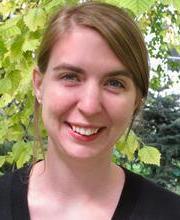
Sarah Dimick
Assistant Professor of English, Associate Director of Undergraduate Studies
Profile
Outside professional activities
Profile
Education: BA: Carleton College (2006)
MFA: New York University (2010)
PhD: University of Wisconsin-Madison (2017)
Interests: 20th- and 21st-century Anglophone Literatures; Climate Fiction and Literature; Environmental Justice Writing; Postcolonial and Decolonial Theory; Petroaesthetics; Environmental Futurisms.
Selected Works: “Disordered Environmental Time: Phenology, Climate Change, and Seasonal Form in Henry David Thoreau and Aldo Leopold.” ISLE: Interdisciplinary Studies in Literature and Environment, vol. 25, no. 4, 2018, pp. 700-21.
“From Suspect to Species: Climate Crime in Antti Tuomainen’s The Healer.” Mosaic, vol. 51, no. 3, Sept 2018, pp. 19-35.
“Frontiers of a Shrinking World: Recent Climate Fiction.” Climate in American Literature, edited by Michael Boyden, Cambridge University Press, 2021, pp. 257-272.
Contact
Email: sarahdimick@fas.harvard.edu
Additional Website: https://english.fas.harvard.edu/people/sarah-dimick
Expertise
20th- and 21st-century Anglophone Literatures
Climate Fiction and Literature
Environmental Justice Writing
Postcolonial and Decolonial Theory
Petroaesthetics
Environmental Futurism
Climate Fiction and Literature
Environmental Justice Writing
Postcolonial and Decolonial Theory
Petroaesthetics
Environmental Futurism
Outside professional activities
Outside Professional Activities
In the spirit of transparency and integrity, Salata Institute Faculty Associates disclose publicly their key professional activities outside of Harvard University. The activities disclosed below are for the most recent reporting period, as defined by University policy. Some of the activities may be paid, some may be unpaid, and others may be in exchange for expense reimbursement only.
Outside Professional Activities For Sarah Dimick
Organizations:
Relationships:
Aldo & Estella Leopold Writing Residency
Prizes or Awards
Routledge
Editorial Services
University of Edinburgh
Speaking engagement, invited lecture, or presentation
The Salata institute
The Salata Institute supports interdisciplinary research that leads to real-world action, including high-risk/high-reward projects by researchers already working in the climate area and new endeavors that make it easier for Harvard scholars, who have not worked on climate problems, to do so.
